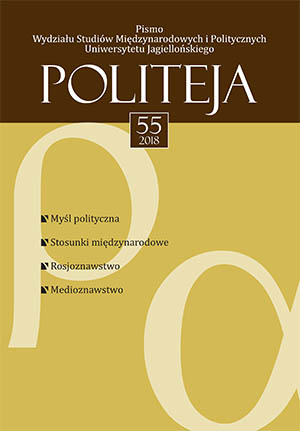Instytucjonalne uwarunkowania rywalizacji o władzę w postradzieckich systemach autorytarnych
Institutional Conditions of the Political Rivalry in the Post-Soviet Authoritarian Regimes
Subject(s): Politics / Political Sciences, Governance, Developing nations, GeopoliticsPublished by: KSIĘGARNIA AKADEMICKA Sp. z o.o.
Keywords: authoritarianism; post-Soviet countries; neoinstitutionalism; patronal politics
Summary/Abstract: More than 25 years have passed since the collapse of the Soviet Union. Despite that, political scientists until now have used the category of ‘post-Soviet countries’, meaning that the Soviet past still determines the direction of the evolution of the political systems of the republics that won their independence in 1991 and that they still share some common features of the political design and have failed to successfully complete the transformation to democracy. The main goal of the following paper is to present institutional conditions that make post-Soviet authoritarian regimes relatively stable and limit the alternation of power. Main conclusions of the paper are the following: firstly, the power in post-Soviet authoritarian countries is held by their presidents who create informal groups of relevant politicians and businessmen that can be treated as neo-patrimonial clients. Secondly, presidential or parliamentary elections are regularly held but are just a facade that is meant to hide and legitimize authoritarian practices of these regimes. Thirdly, in such countries significant role the political life is played by the so-called ‘parties of power’ – non-ideological parties whose only goal is to support the president.
Journal: Politeja - Pismo Wydziału Studiów Międzynarodowych i Politycznych Uniwersytetu Jagiellońskiego
- Issue Year: 15/2018
- Issue No: 55
- Page Range: 175-194
- Page Count: 20
- Language: Polish

